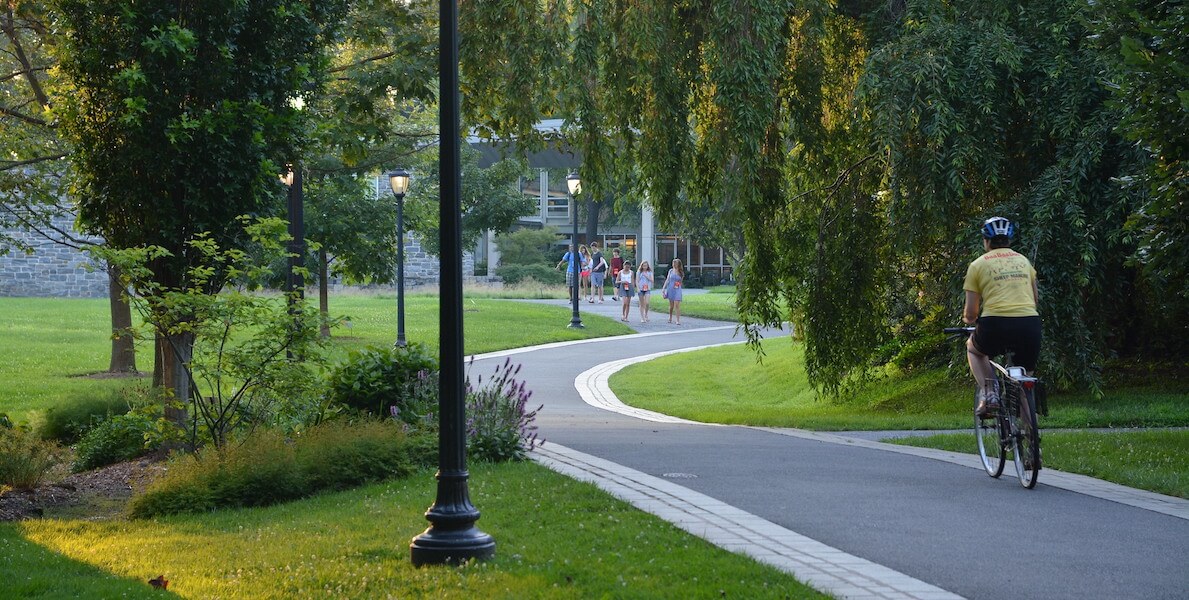In June, I told Stephanie Farr from The Philadelphia Inquirer, that I chose Swarthmore College over the University of Pennsylvania, in part, for safety reasons. The night I made my college decision, I represented Philadelphia City Councilmember Cindy Bass at a public safety meeting in the 35th police district. When I returned home from that meeting, I faced a public safety nightmare: Three people had been shot in front of my house.
It was dark outside, so my then-colleague drove me home. But we couldn’t enter my block because it was lined with a horde of police cruisers. At that point, I checked my phone and saw dozens of missed phone calls from my family. I returned my mother’s call, and her first question was, “Where are you?” I told her I was in the car with my colleague. My mother sighed in relief because, knowing I was coming home soon, she had feared I was in one of the ambulances, struck by crossfire. (The irony of spending my evening discussing public safety just to come home to a crime scene … only in Philly).
That’s when I decided I could no longer be in our city of brotherly love and sisterly affection. It was my last straw. Leading up to that point in my life, I spent night after night sleeping to lullabies of gunfire; I witnessed a shooting on my twelfth birthday, and I couldn’t sleep in my room on New Year’s Eve in case someone shot into my back window as someone did on the first New Year’s we bought the house. I’d had enough. So, I chose Swarthmore College, located in a quiet Delaware County suburb, where I can walk at night without fearing for my life.
It’s high time to assess the impact crime has on college students — particularly the effect on prospective students’ interest in colleges and colleges’ retention rates.
But I sometimes question that decision, wondering how life would be different had I chosen UPenn. I don’t ponder this out of regret — I thoroughly enjoy Swarthmore College and believe it to be one of the finest institutions in our country — but the Ivy league is different. It comes with a different kind of prestige. And I had to give that up because the climate of our city is not conducive to a healthy learning environment. Recently, however, doubts about that decision dissipated when I saw what Philly college students are experiencing on their campuses.
A few weeks ago, students at Temple University were robbed at gunpoint in their off-campus apartment. Not once but twice, at separate off-campus housing. The first time, armed robbers stole Apple Watches, iPhones, and similar technology. They also stole a student’s car and a gun. (I guess Temple students are packing these days?)
The second time, armed men came looking for drugs, which they were told would be in that off-campus apartment. That turned out to be untrue, so they locked the 11 Temple students in a basement. One student said, “I think the sad part is, we all talked in the room, we all realized once they came into the room, everyone was kind of like oh, it’s our time now.”
It’s our time now? Philly collegians are expecting to become victims of crime. This sad reality will dissuade young people from attending Philadelphia colleges and universities. More and more students will begin making the same decision I did with UPenn, which will hurt our city because college students are part of the local fabric — even if just for four years.
Collegians’ contributions to local economies keep some neighborhoods afloat. Cecil B. Moore, for example, would not be the active business corridor it is without Temple students. Though they don’t always act like it, collegians are also stakeholders in the communities where their colleges sit.
Like other stakeholders, college students make a livability calculation when applying to colleges. Part of this calculation is safety — I know female students who, when applying to college, googled campus rape statistics before applying.
We can’t keep calling Philadelphia a city of Eds and Meds when attending the Eds is unsafe.
We expect homeowners and permanent residents to care about crime because crime impacts quality of life and property values. But college students make the same assessment. Not for property interests but because safety influences their quality of life.
And because they are stakeholders, it’s high time to assess the impact crime has on college students — particularly the effect on prospective students’ interest in colleges and colleges’ retention rates.
Research on this issue is thin. One of the few studies addressing the intersectionality of safety and college interest and retention was in an academic journal article by Abigail Hauer, a then-student at Gettysburg College. Hauer concluded that “retention rates decreased when college crime expectations and college crime overall increased.” This means “college crime negatively impacts both students who do and do not anticipate college crime before arriving on campus, causing them to transfer or drop out.”
City government and local universities need to take a cue from this young academic and look at how to mitigate the adverse effects of crime on college students, colleges as institutions, and the local economy.
We can’t keep calling Philadelphia a city of Eds and Meds when attending the Eds is unsafe.
Jemille Q. Duncan is a public policy professional, columnist, and Gates Scholar at Swarthmore College. He is the former aide of two Philadelphia City Councilmembers and a Pennsylvania State Senator. @jq_duncan
![]()
RECENT POSTS BY JEMILLE Q. DUNCAN



